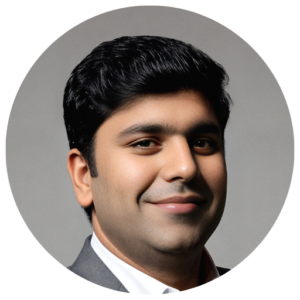
By the end of this article, you will know how to protect founder attention as a measurable resource so you ship faster, generate real market signal, and stop confusing motion with progress.
Why Founders Lose Focus at the Seed Stage
Seed-stage founders don’t lack ambition. They lack bandwidth.
In a typical morning you can get pulled across five different realities:
- A customer asks for a feature “or we churn.”
- A teammate pings about a production issue.
- An investor wants an update “today.”
- A hiring candidate needs a decision.
- A competitor announces something loud.
None of these is fake. That’s the trap. The work feels “real,” so it feels irresponsible to ignore it.
But here is the structural problem:
At the Seed stage, your company has one scarce resource that cannot be purchased, hired, or delegated quickly enough:
Founder’s attention.
Not time. Attention.
Time exists on the calendar. Attention is the thing that decides whether time produces:
- decisions
- shipped output
- customer learning
- pipeline
- momentum
Or whether time dissolves into:
- scattered tasks
- meetings that end without ownership
- “alignment” that creates no signal
- late nights that don’t move the business
Most startups don’t fail because founders didn’t work hard. They fail because founders worked hard on too many things that did not generate signal.
If you are pre–Series A, you are not operating a machine. You are running a search process under uncertainty. The objective is not to “be busy.” The objective is to find what works before the runway expires.
And the focus is the governor.
Attention Is a Signal Allocation System
Most founders treat focus like a personality trait:
- “I need more discipline.”
- “I need better habits.”
- “I need to stop procrastinating.”
That framing is too psychological.
Here is the operational reframe:
Focus is not self-control. Focus is allocating attention toward actions that create signal.
At the Seed stage, attention is functionally equivalent to budget. You can spend it, waste it, or invest it.
- Invested attention produces shipped increments, customer conversations, experiments, pipeline movement, and decision closure.
- Wasted attention produces coordination overhead, reactive firefighting, “research,” internal debate, and busywork that looks responsible.
The modern founder problem is not “distraction.” It is unpriced attention spent.
When you don’t explicitly decide what your attention is for, the loudest input wins:
- urgency beats importance
- internal opinions beat external signals
- inbox beats roadmap
- meetings beat shipping
So the real question is not:
“How do I focus more?”
It is:
“What signal am I trying to create this week, and what attention span produces it?”
The 7-Day Focus Protocol
This is a tight protocol you can implement immediately. It is designed to work with real founder constraints: limited time, constant interruptions, and the need to keep the company moving.
Step 1: Define One Weekly Signal Goal
A “signal goal” is not a task. It is an outcome that reduces uncertainty.
Pick one:
- 10 qualified customer conversations completed
- 3 demos booked from a single channel
- 2 paid pilots proposed and priced
- 1 onboarding flow shipped and measured for activation lift
- a pricing page test run with real prospects
If you can’t state it as a measurable outcome, it’s not a signal goal.
Now make the rule explicit:
All work this week must either (a) produce this signal or (b) protect the ability to produce it.
Everything else becomes negotiable.
Step 2: Create an Attention Budget (Not a Calendar Plan)
Calendars lie. They show time blocks, not cognitive availability.
Create an attention budget with two assets:
A. Two daily focus blocks (90 minutes each)
- No Slack
- No email
- No meetings
- One objective tied to the weekly signal goal
If you can only do one block, do one. But protect it like a runway.
B. One daily “reactive window” (60 minutes)
This is when you handle:
- Slack
- admin
- scheduling
- low-cognition tasks
This prevents “reactive mode” from bleeding into your entire day.
The rule is simple:
You don’t eliminate reactivity. You contain it.
Step 3: Install a Kill List and an Owner List
Most founders try to focus by adding tools.
Real focus is subtraction.
Do this in one sitting (30 minutes):
Kill List (remove 1-3 things this week)
Examples:
- one recurring meeting that doesn’t produce decisions
- one dashboard you check compulsively
- one “research” thread that never ends
- one community/event that isn’t tied to signal
Owner List (delegate 1 thing this week)
Pick one recurring task and assign ownership:
- customer support triage
- scheduling
- internal status updates
- basic analytics pulls
Delegation is not about “being above the work.” It is about protecting attention for the only things founders uniquely must do:
- decide
- ship
- sell
- learn
If you don’t create owners, the system will make you the owner of everything.
The Rule That Matters
If your attention does not produce a signal, it is a burn.
That applies to:
- meetings
- strategy debates
- internal alignment
- tooling experiments
- even “learning”
If it doesn’t reduce uncertainty or move an outcome, it is cost disguised as progress.
What to do next
Within the next 72 hours:
- Write down one weekly signal goal.
- Block at least one 90-minute focus session on your calendar for the next two workdays.
- Cancel or pause one commitment that does not support the signal goal.
Then run the protocol for seven days. At the end of the week, ask one question:
Did my attention produce a signal, or did it produce motion?
References & Further Readings
- Cleveland Clinic. (2021). Why multitasking doesn’t work.
- EARLY (2024). How context switching wrecks your productivity.
- Harvard Business School Digital Initiative. (2018). Story of Toutiao.
- Hoffman, R. (Host). (2018). Masters of Scale: Stewart Butterfield, Slack case study
- HubSpot Startups. (2023). How AI tools are impacting the startup landscape.
- LinkedIn (2024). The importance of delegation in startups.
- Momentum Works. (2023). Colin Huang’s reflections.
- Monster.com. (n.d.). The legacy of Steve Jobs.
- Next Play Ventures. (2021). Focus: The one thing every startup needs.
- Starthawk (2023). How founders maintain ruthless focus in a distraction-filled world.
